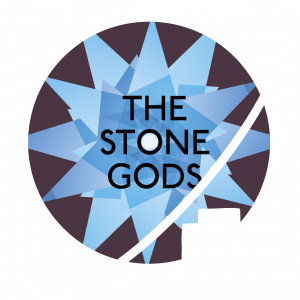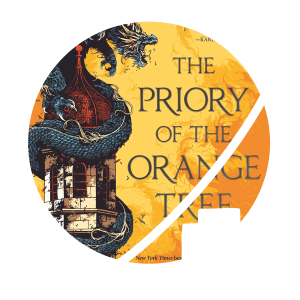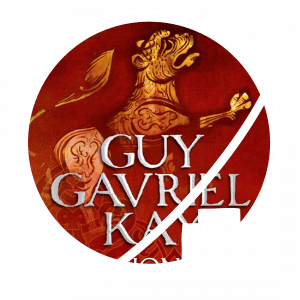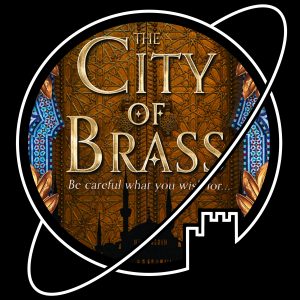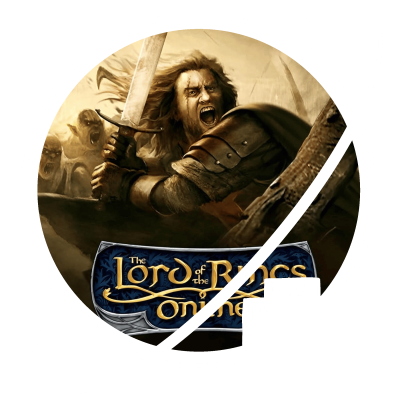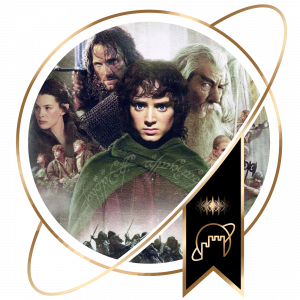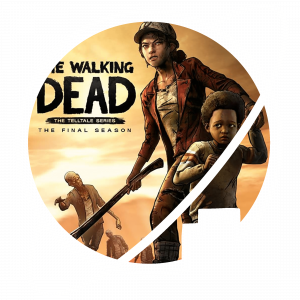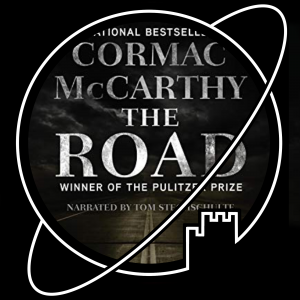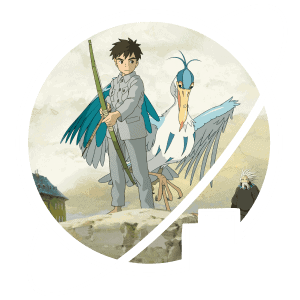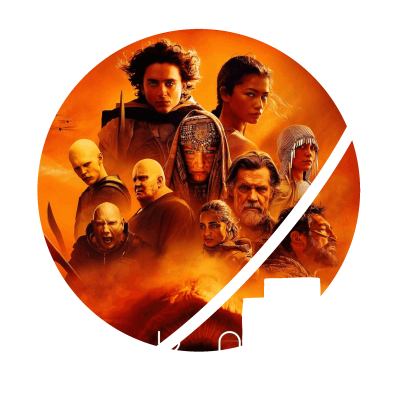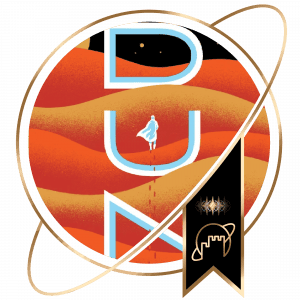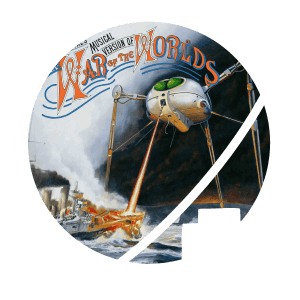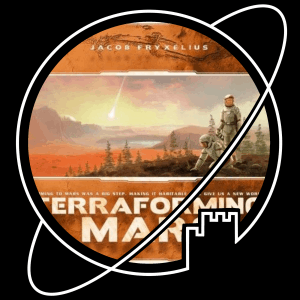Welcome to the Escape Velocity Collection!
We are an opinionated group of friends reviewing all sorts of fantasy and science fiction media. Don’t forget to get to know the curators and visit our curated Collection, where we discuss the stories that never cease to transport us to another world.
Will you escape with us?
LATEST POSTS:
- Movie directed by Bertrand Bonello
- Starring Léa Seydoux, George MacKay and others
- Spoken in French and English
- Released 7 February 2024
- Runtime: 145 minutes

The Beast has a very atmospheric, almost hypnotic style of cinematography, which at the same time feels quite ominous. Just like the main character Gabrielle you can’t help feeling like something bad is going to happen at any moment, a feeling aided by the unsettling music that accompanies many of the scenes.
The movie touches upon many different themes, like desire, intergenerational trauma, and ultimately the question of what makes us human. While these are all interesting themes, I felt that some of them could have been explored a bit more in-depth. For example, the description of the movie made me think that humanity’s relationship with AI was going to be a big part of this movie, but it was really only used as a backdrop. I think if they had tried to put slightly fewer ideas into the movie, the rest may have had more space to fully develop.
Moreover, in the second half of the movie it turned from a period drama to a full on thriller, and I enjoyed that half significantly less. I realise that this is mostly because I just do not enjoy horror/thiller in general, but I still feel that even so, this part took longer than necessary.
What did stand out to me, were the performances by the two main actors. Both of them did an incredible job in portraying their roles throughout the different ‘reincarnations’. The characters were both markably distinct, and still believably the same ‘person’. I also really enjoyed the mirroring of images, phrases or whole scenes between the different time periods. This really added to making the story one whole, instead of three separate narratives.
Overall, this movie did give me something to think about, and while I was cycling home from the cinema I felt like I had just returned from a completely different reality. So in the end I would say it was a worthwhile experience.
- Novel written by S.A. Chakraborty
- Published in 7 March 2023
- Part one of a planned Amina al-Sirafi-trilogy


The Daevabad trilogy remains one of my all time favourite fantasy series, so you can imagine my excitement when I saw that a new Chakraborty had been released. Unfortunately I did not end up loving this one quite as much as the Daevabad trilogy, but the book still has much to recommend. I really liked that the protagonist was a bit older than the average fantasy protagonist. Because of this Amina’s internal struggles were refreshingly different: no annoying teenage angst, and the book was not driven by the romantic tension of some complicated and tortured love triangle. Instead, Amina’s thoughts were more focussed around the dilemma’s of leaving her child behind while providing for her family. A struggle many working parents will surely be able to relate to.
The book also does quite well on the representation front in general, and while a lot of the story was taken up by the ‘getting the old crew together’ build-up, it was fast-paced enough that it did not get boring. The plot itself was not spectacularly original, but I would say it served it’s purpose.
So overall I enjoyed the book, but it did not stand out to me like the Daevabad trilogy did. As always, it’s the characters that make or break the story for me, and while I liked them, I cannot say that I loved them. For example, three years after reading The Empire of Gold I am still able to vividly picture many of its side characters and to explain their complicated political motivations, while except for Amina herself, the crew-members in this book already seem to have blurred together in my mind.
Then again, there is definitely a lot of potential there, and with the Daevabad trilogy the first book was also by far my least favourite of the three. So when part two is released, count me in for sure!

Listened to the audiobook with Amin El Gamal and Lameece Issaq – well narrated.
Unlike most of our curators, I rather disliked Chakraborty’s City of Brass – it has been a while since I read it, but I mostly remember teenage drama taking all the life out of what could have otherwise been an interesting story in an original setting. I reread my review and I noted that Chakraborty’s style would perhaps be better suited to a more light-hearted tale (this is foreshadowing).
The Adventures of Amina al-Sirafi is not a more light-hearted tale. Quite the opposite, in fact: in Amina al-Sirafi, Chakraborty lost all the teenage drama and made her protagonist a retired pirate captain who is a mother first and foremost. I like that change of pace, and as a result, I think The Adventures of Amina al-Sirafi fit me a whole lot better. Whether Amina al-Sirafi also fits Chakraborty’s style better is another question altogether.
I’ve only read two of her books, so I should perhaps be careful to judge, but my impression is that Chakraborty tends to just keep it simple in her world building: less of a carefully constructed set of rules or a build up towards a certain end goal, more of a series of go-with-the-flow, rule-of-cool impressions.
The Adventures of Amina al-Sirafi is no different. None of the magical plot elements are ever really explained; they just exist and the reader is along for the ride. Especially towards the end of the book, a whole lot happens that raised my eyebrows a couple of times, but the reader is just expected to take it in stride.
I found this particularly frustrating because at the start of the novel, Chakraborty seems to be making an effort to ground her fantasy novel in the real world 12th century Middle-East, which initially had me hyped up – but it soon becomes apparent that she is liberally pasting staples of the fantasy genre over her historical setting.
The plot is written in a similar style. The first half of the book skirts the edge of cliché with how closely it follows the predictable tropes of ‘retired hero blackmailed into one last job’ and ‘getting the boys back together’. Chakraborty doesn’t execute these tropes poorly, but I feel this section of the book takes way more time to tell than it probably should have (especially considering that I still never really connected with the rest of the crew Amina is getting back together).
The second half of the novel is a highly-paced and action-packed flow that keeps your attention. Unfortunately, I felt the resolution of the plot isn’t particularly well-constructed and at times felt like it was written on the fly. It is best not to overthink it too much. Then again, I don’t think Chakraborty really encourages the reader to stop and think about it – that is not the kind of plot that she is writing.
It is, however, the kind of plot that I want to read. As a result, I lost my investment in the story towards the end of the novel and I might even have zoned out for some of the big end fights. I guess it is a sign on the wall.
Overall, I didn’t dislike The Adventures of Amina al-Sirafi, but I wouldn’t exactly recommend it to people like me either. I’ve been going back and forth on my star rating, and I probably would have given it 2.75 stars if that were a thing we did on this website. To me, it just falls narrowly short: lacking slightly in depth, lacking slightly in character; the plot in the first half is just a bit unoriginal, the resolution in the second half not quite earned – and the novel is still over 16 hours of listening.
Bluntly put, The Adventures of Amina al-Sirafi is just too long, just slightly too ambitious for what it offers. If this would have been a quick and simple 8-hour read that I would have blazed through in a week, I would have likely rated it a whole lot higher.
As a result, I remain convinced that Chakraborty’s style is just a little ‘light’ for the kind of novels she is writing. I’m not sure I’ll pick up another of her books, but I might be interested if she veered off into a more intentionally simple and humorous direction, where I feel her original ideas might come into their own a lot better.
Tagged:
See also:
- Video game developed by Standing Stone Games
- Published by Daybreak Game Company
- Released in April 24, 2007
- Massively multiplayer online role-playing game
- Platforms: Microsoft Windows, OS X
- Playing time: hundreds of hours. And they still release expansions!

Hearken to me! Too long have you sat in the shadows. After seventeen years, I feel it’s my duty to release you from this spell.
Yes, I was there, dear reader, I was there some seventeen years ago, just a wee little bairn skipping through her life and being entirely obsessed with The Lord of the Rings. When they first announced there would come an online role-playing game set in Tolkien’s Middle-Earth, it was never a question of whether I would buy it, but rather if my internet connection and PC would be strong enough to handle playing it. During the free early release, I quickly discovered my technical set-up was less than ideal. It took my character 10 long and laggy minutes to move from one NPC quest giver to another in the same street. But did this deter me? Not in the slightest. Because despite my aberrant gaming experience, I had seen this game’s glorious potential and had become enthralled. As such, after the early release had ended, I immediately took my saved money to buy the then available lifetime subscription for some 100 dollars. Now, seventeen(!) years later, it’s an investment I’m still very grateful for.
Not many people know this, but Lord of the Rings Online (or ‘LOTRO’ as the cool kids call it) might in many ways very well be the best adaptation of Tolkien’s writings. A bold statement, I know. Still, when it comes to faithfulness to its source material, this game does unequaled work. This pertains not only to the depictions of canon events and characters, but also to all the lore and worldbuilding the game developers add to it. They seem to know exactly how to stay true to the themes Tolkien found so important, as well as his dedication to details and specific sense of humour. Did Tolkien write about what the Dúnedain of the North were up to before they travelled south as the Grey Company? No, but it makes sense they fought their own battles against the forces of evil. Similarly, it makes sense that after the war, people would have to struggle with how to deal with the Easterlings, Haradrim and corsairs from Umbar who had no ways to return home.
Although I only play LOTRO casually (sometimes ignoring it for months) I’m always excited to return and see how the game developers give a voice to lands and characters that Tolkien only mentioned in passing, if at all. In the same line, I absolutely love how this game has grown. Not only in size – at first, you could only travel from Ered-Luin to the Misty Mountains, and from the Lone Lands to Angmar, while now continents as Rhovanion, Gondor and recently the lands of Umbar are also available – but also in spirit. I still feel immense glee everytime I encounter a black Gondorian, lesbian dwarf warriors or anything else that proves that diversity fits in Tolkiens world as much as the real world.
LOTRO delivers, I think, what most Tolkien fans secretly want: a way to explore his rich and beautiful world without limitations, as a character of their own making. A clever design choice is the fact that the story of the well-known characters such as Frodo, Aragorn and Gandalf often plays only in the background. Though you as a player might know what is happening, your character doesn’t and mostly has their own battles to fight. You don’t play second fiddle in that regard. Also, this decision allows for more creative storytelling with stakes that feel real, because you know the canon characters won’t suddenly steal your thunder. And believe me, the writing in this game is extremely good, not only the epic quests, but also the silly little adventures one might find in the Shire. Additionaly, some storylines still haunt me to this day, with emotional impact and plottwists that I wish would reach a greater public than is the case now.
So, does me giving this game five stars mean that it’s perfect. Well, no. Like I said, it’s already seventeen years old. The graphics can’t compare with modern day games, though I’ll argue that LOTRO can still be a very beautiful game in its own right. There are still times I halt ingame to take a look at the stunning landscapes, at least.
Another thing not everyone might like: this game is a MMORPG. This comes with clunky game mechanics I’m not always particilarly fond of, some elements of grinding, paywalls and people that say things in the world chat that you don’t think Samwise Gamgee would approve of. It’s possible to play most of this game solo, such as the main story, but there is also content that you can only complete in a group. For others, this might not be an issue, though.
If my essay did not fully convince you, I’ll urge you to still give Lord of the Rings Online a try. Its main storyline is free nowadays, so you only lose time if the experience is dissapointing. One last advice from me? If you happen to have a friend that might join you in adventuring in Middle-Earth, do invite them. When I started playing LOTRO as a child, I loved questing with my primary school friends. Though we’ve lost touch with eachother long ago, I still fondly harbour those memories to this day.
- Novel written by Richard Matheson
- Published in July 1954
- Standalone


I think most people from my generation will associate the title above this review with the 2007 film featuring Will Smith more than with the 1954 novel that inspired it. I didn’t even know it was based on a novel until a couple of years ago. Well, I’ve read the novel now, and I am here to give you my thoughts on it.
I enjoyed I Am Legend for two different reasons.
First, I enjoyed it because unlike many other last-man-standing survivor stories, I Am Legend managed to paint a somewhat believable picture of a lone man struggling with loneliness, alcohol, and the frustration of having to take on the world alone, having to do everything yourself.
Where in many stories the chief emotion these people seem to feel is a melancholy sadness, Matheson’s main character, Robert Neville, is mostly depressed, and angry at himself, and at everything around him and at the unfairness of it all. As Neville develops over the course of the novel, your view of the world changes with it. It’s not a character driven masterpiece, but it works well.
The second reason I enjoyed reading I Am Legend is, whilst it has its unique characteristics, in some ways it feels like a relatively middle of the road zombie-apocalypse novel written last year – while being old enough to collect a pension. This is because it established so many of the tropes that are now the bread and butter of the genre.
For example, and the next paragraph contains slight spoilers, the idea of a disease that turns people into monsters globally – be they vampires or zombies or ‘walkers’ or whatever in-universe name is picked – is ubiquitous today. As far as I know, that trope was first used in I Am Legend.
Though the science itself is of course bogus (and the way Matheson uses it to explain the characteristics of his vampires makes you raise your eyebrows), it was novel at the time. In a way, it could be argued that Matheson invented the zombie apocalypse. It’s almost worth reading the novel just because of its role in the history of the speculative genre.
In conclusion, whilst it might not feel like a very original read, there are several good reasons to give I Am Legend a shot – not the least of which is that the only reason it doesn’t feel too original is that everyone who came after copied it.
Tagged:
See also:
- Novel written by Diana Wynne Jones
- Published in April 1986
- Part one of Howl's Moving Castle series
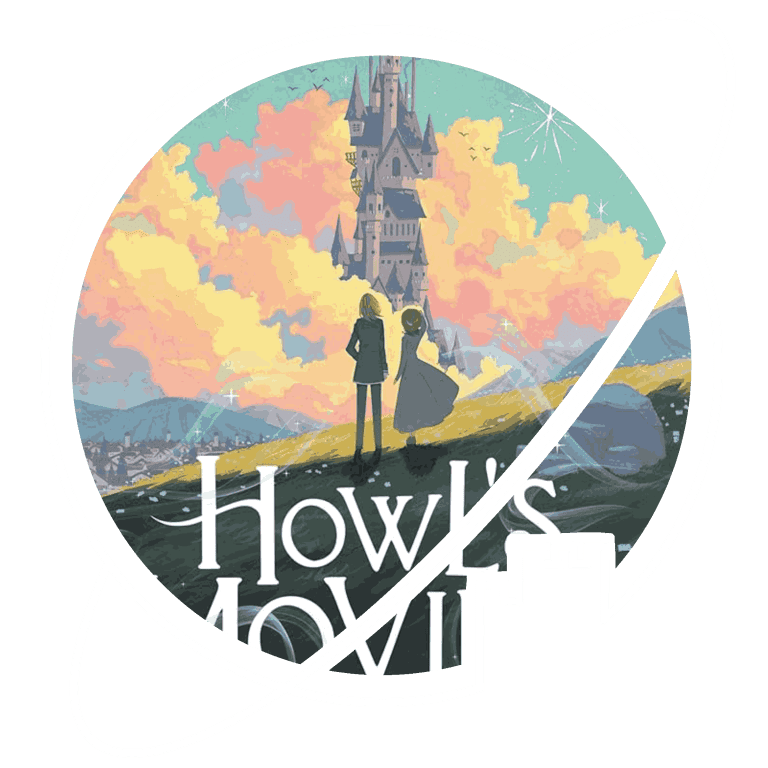

Listened to the audiobook with Kristin Atherton – good narrator, no specific comment.
As a rule, I really like to read the book before watching the adaptation, but in the case of Howl’s Moving Castle, I’m not even sure I knew the Ghibli movie was an adaptation and not an original work.
If you read my review of the Howl’s Moving Castle Studio Ghibli adaptation, you will find that my main gripe was that I couldn’t make any sense of the story, in particular the latter half. So I picked up the book a little while ago to see if I could remedy that. To be honest, I’m still not sure what the hell they were thinking in that adaptation. But that’s a rant for another time.
What I did find, however, was very charming fantasy book that has many of the same elements as the movie, except they’re arranged in an order and mutual relationship that results in a plot that makes sense from start to finish.
In fact, I really like Jones’ reversal of the standard ‘portal fantasy’-trope, where the story is not told from the perspective of the visitor, but rather from the perspective of the inhabitants of the world that is visited. I’m struggling to remember other examples of similar subversion – I’m sure there must some in The Chronicles of Narnia and if I remember correctly in The Neverending Story, both of which are interestingly children’s stories. In some ways, I guess Iain Pears’ Arcadia also qualifies.
Aside from this interesting quirk, Howl’s Moving Castle is a well-written, funny, and charming children’s book in a whimsical fairy-tale world that I would say is also worth picking up for adults. Especially with the Ghibli-imagery floating around in my head, I loved the world and the characters and really enjoyed the cozy atmosphere.
If only the adaptation had stuck to this version of the plot…

Like Peter, I also listened to the audiobook. Unlike Peter, I have a comment about this: I think it really added to my enjoyment of the book to actually hear Howl’s Welsh accent. Atherton also does a delightful little voice for Calcifer, which made me love the character even more than I might have had I read the physical book.
Like everyone, I had also seen the Ghibli movie well before I even a) realised it was based on a book and b) got around to reading said book. Because of this, I was slightly concerned that I wouldn’t enjoy the ways the book deviates from the movie. However, my worries proved completely unfounded.
Howl’s Moving Castle doesn’t play out exactly like the Ghibli film, but overall, it has the same vibe, and broadly, the story is the same. The movie clearly had to simplify the plot of the book, which is why it’s really nice to read how things actually play out. While wonderful, the movie absolutely gets confusing at times. The book has a much more understandable plot, which, while still slightly convoluted, never gets quite as confusing as the Ghibli movie.
On top of this, the movie adds an extra layer of complexity with the war that takes place in Sophie’s world. This is altogether absent in the book, and I don’t know if I agree with the choice to add it to the Ghibli film. The story works much better without another layer of politics and drama.
I really enjoyed the characterisation of Sophie, who refuses to take shit from anyone the moment she gets turned into an old lady. Howl, who is already vain and dramatic in the movie, turns out to have been even MORE vain and dramatic in the source material. On top of this, the man has a Welsh accent. A Welsh Accent! This is where I really think the audiobook enhanced the reading experience for me. I know what a Welsh accent sounds like, but I wouldn’t have been able to constantly imagine it while reading.
I’ve not been super impressed with the fantasy media I’ve been consuming lately (*cough* Fourth Wing *cough*). I‘ve been itching for some good fantasy stories that don’t feel like cheap imitations of other stories, or seem to be written only because certain “tropes” are popular on TikTok. Howl’s Moving Castle definitely scratched that itch, and I’m excited to read more of Jones’s work.
- Movie directed by Denis Villeneuve
- Based on the novel Dune by Frank Herbert
- Starring Timothée Chalamet, Zendaya, Rebecca Ferguson, Josh Brolin, Austin Butler, Florence Pugh, Christopher Walken, Stellan Skarsgård and others
- Released 1 March 2024
- Runtime: 165 minutes
- Part Two in the Dune movie trilogy

In my review of the first part of Denis Villeneuve’s Dune-adaptation, I described my near-religious experience when I finally got to see one of my favourite novels come to life on the big screen. Watching Dune: Part One is probably my very favourite cinema experience ever. I felt the first Dune-adaptation delivered at every turn, and I couldn’t wait for the second part to be released.
So how did Dune: Part Two hold up?
First: Dune: Part Two is an absolutely incredible cinema experience. Please don’t miss out on the opportunity to be rattled out of your chair by the sounds and positively run over by the visuals of this movie.
On the whole, Part Two ticks all the same boxes that Part One does: great visual design, stunning shots, terrifying and heartbeat-raising music, believable and moving character moments, and plot and logic that are barely within grasp.
There is one important difference though: Part Two is actually quite different from Part One in its adaptational choices. Where Part One is incredibly faithful to Herbert’s novel, Part Two deviates quite a bit more. To some extent, this was inevitable: a lot happens in the novel, politics and deception with layer upon layer of depth that just don’t hold up well in a movie adaptation.
That threw me off a bit when I watched the first time. Especially because Dune: Part One was so faithful, I kept expecting certain things to happen, which then didn’t.
But now that I’ve seen the movie a few more times, I understand the adaptational choices a lot better. The novel Dune needed streamlining to work as a movie, even if split into two two-and-half-hour behemoths. It is simply not possible to give every character and every scene from the book their due. Paul’s internal struggle needs to be made visual for the public. It needed to happen that way, because even as it is, I’ve gotten a lot of question on the how or why from people who’ve not read the books.
Some of Villeneuve (and screenwriter Jon Spaihts)’s choices are different from what I might have come up with. For example, they made Paul’s choices a lot more binary, a lot more clear cut. But I get what they did. They retained the cornerstones of Paul’s story, and told a streamlined version of what happens in between.
And that streamlined version of the story absorbs you as you watch it. I heard some people complain that Part One was a bit slow for their liking; Part Two keeps your attention every second. I feel like the pace is really high in between the scenes, but sufficiently slow during the scenes that there is room for character moments. There are enough juicy action scenes for the movie not to get boring, but the movie is not about the action. Dune: Part Two separates itself from other sci-fi blockbusters in being thought-provoking. Who are the good guys, at the end of the day?
I might have to admit that Dune: Part Two did not quite bring that semi-religious high I got from watching the first movie in the trilogy. There are a few nit picks that I don’t have the space to explore in this review. Overall, though, this is Dune brought to the big screen and it is amazing – and if you have not seen it yet, you are missing out on the sci-fi event of the year.

Let me preface my review with the caveat that – contrary to some other curators here – I’ve seen this second instalment of the Dune-series only once while writing this review. As with its predecessor, it was a delight to watch this movie on the big screen in Peter’s company. Unlike its predecessor, this movie had much more scenes with Zendaya, which – though her appearance would normally give any piece of content a great advantage when it comes to my appreciation of it – was all in all not enough to totally win me over.
Dune: Part Two is not a bad movie. However, now that I’ve had some time to think about it, I can also say with certainty that I don’t think it’s necessarily a good movie either. Though Peter mentions the pacing as one of Dune: Part Two’s strong points, in my experience the contrary was true. There were many times I felt the story was dragging, something I had less problems with during Dune: Part One. This might mostly be due to me having read the book. I have a tendency to root for underdogs in stories. Whereas the first movie, depicting protagonist Paul’s fall from power, was very engaging in that regard, in this movie it never really felt like he was out of control at any moment. His internal struggles – a big component in the book – fell somewhat flat on screen. Meanwhile, all his political opponents seem too distant to be a real threat to Paul and his goals.
Similarly, due to the first movie’s faithful adaption, I went into this movie with more expectations than I should have done. One of my favourite storylines in the book concerns my boy Thufir Hawat, a character that is painfully absent in Dune: Part Two. Though I certainly understand the creative choices that were made, such as omitting some storylines and simplifying others (let’s be frank (herbert), the book is quite a complex piece of work), I was not always happy to see them.
Still, even when I detach the movie from my experiences with its predecessor and the book, this changes little for me. Maybe Dune is ultimately not a story for me, despite me having a great fondness for many of its themes. Or maybe, it’s just the writing of this specific movie that doesn’t appeal to me.
The worms were once again a sight to behold though, and the acting was still great. By the way, did I already mention Dune: Part Two heavily features Zendaya?

Review: The Beast – Bertrand Bonello
In a near future where artificial intelligence reigns supreme, human emotions have become a threat. To get rid of them, Gabrielle must purify her DNA by going back into her past lives. There, she reunites with Louis, her great love. But she’s overcome by fear, a premonition that catastrophe is on the way. (Official cinema blurb)

Review: The Adventures of Amina al-Sirafi – S.A. Chakraborty
Part one in the Amina al-Sirafi Trilogy – Retired pirate captain Amina al-Sirafi is called back to the sea when she is recruited to investigate the kidnapping of the daughter of a wealthy merchant from the city of Aden. While she struggles to leave behind her daughter, she gathers her old crew around her and sets out to find the cruel Frank mercenary Falco Palamenestra. The quest takes a dark turn, however, when rumours reach Amina that the Frank is an occult sorcerer with dangerous magic…
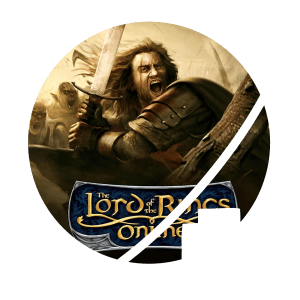
Review: Lord of the Rings Online – Standing Stone Games
Most people know the tale of Frodo Baggins and his quest to destroy an evil ring. But do they know of the many other unsung heroes of Middle-Earth fighting against the shadows? What happened in the rest of Eriador while Frodo was travelling to Imladris? How did the common folk of Rohan, Gondor and the Dale-lands survive during the War of the Ring and thereafter? And who took control of the Dark Lord’s lands after his downfall?
In Lord of the Rings Online you embark on your own journey, discovering secrets and realms no one has ever seen before.

Review: I Am Legend – Richard Matheson
In this 1954 novel that arguably laid the groundwork for today’s zombie apocalypse genre, Robert Neville is a lone survivor in a post-apocalyptic world where everyone who is not dead has turned into a bloodsucking monster. Having lost everything to live for, he sits behind the walls of his fortified house, listens to Chaupin to drown out the cries from the dark, and drinks too much whiskey, trying to find meaning in staying alive.

Review: Howl’s Moving Castle – Diana Wynne Jones
On a normal day selling hats in the shop, hatmaker Sophie has the bad luck to be cursed by a witch to look and feel like an old crone. Previously having resigned herself to her dull fate, she now promptly leaves the shop and knocks on the door of the wizard and notorious womanizer Howl to get her curse lifted. She comes to an agreement with the fire demon living in Howl’s hearth instead.

Review: Dune: Part Two – Denis Villeneuve
Having joined a band of Fremen guerillas, Paul Atreides, now Duke of Arrakis, needs to find a way to avenge the death of his father and friends. But how can he strike back at the Harkonnens, or even the Emperor, from the depth of the desert? His mother believes the key to lie with the Bene Gesserit prophesy of the Lisan al-Gaib, the off-world prophet foretold to lead the Fremen to paradise. But along that path lie many dangers, and Paul is reluctant to follow it.










